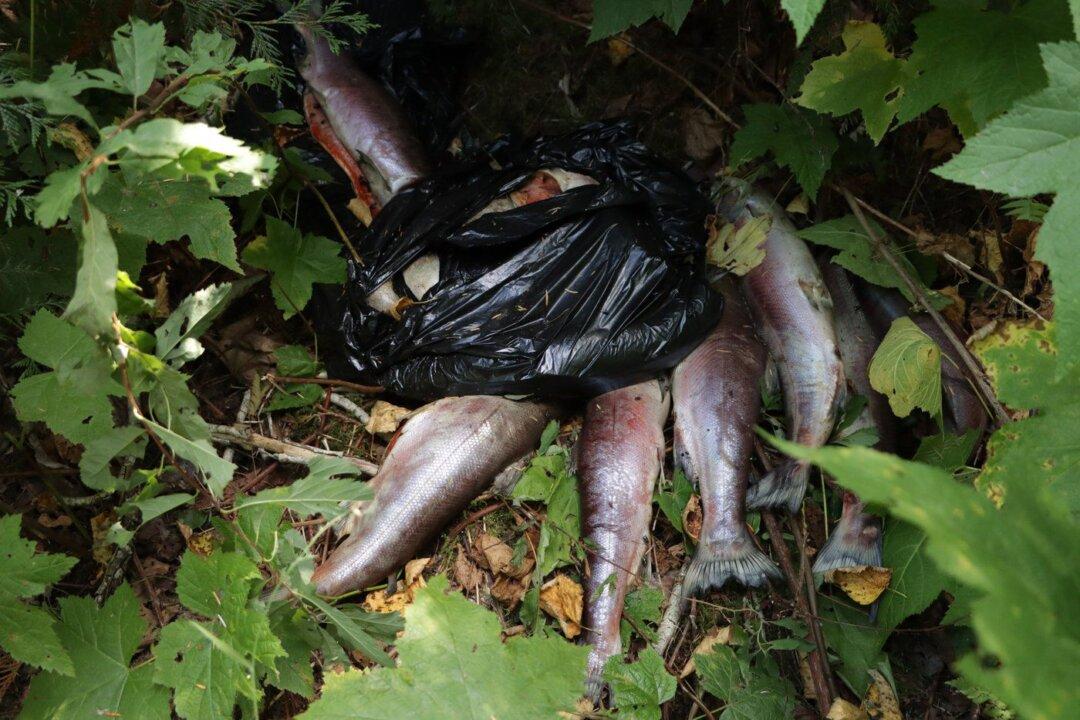Rodney Hsu says he has found too many Fraser River sockeye in places they aren’t supposed to be this season—from residential areas to gravel roads, wrapped up in garbage bags and rotting in the open air.
Hsu, the man behind sport fishing website “Fishing with Rod,” is among those who say the dumped salmon carcasses are evidence of illegal sales.





